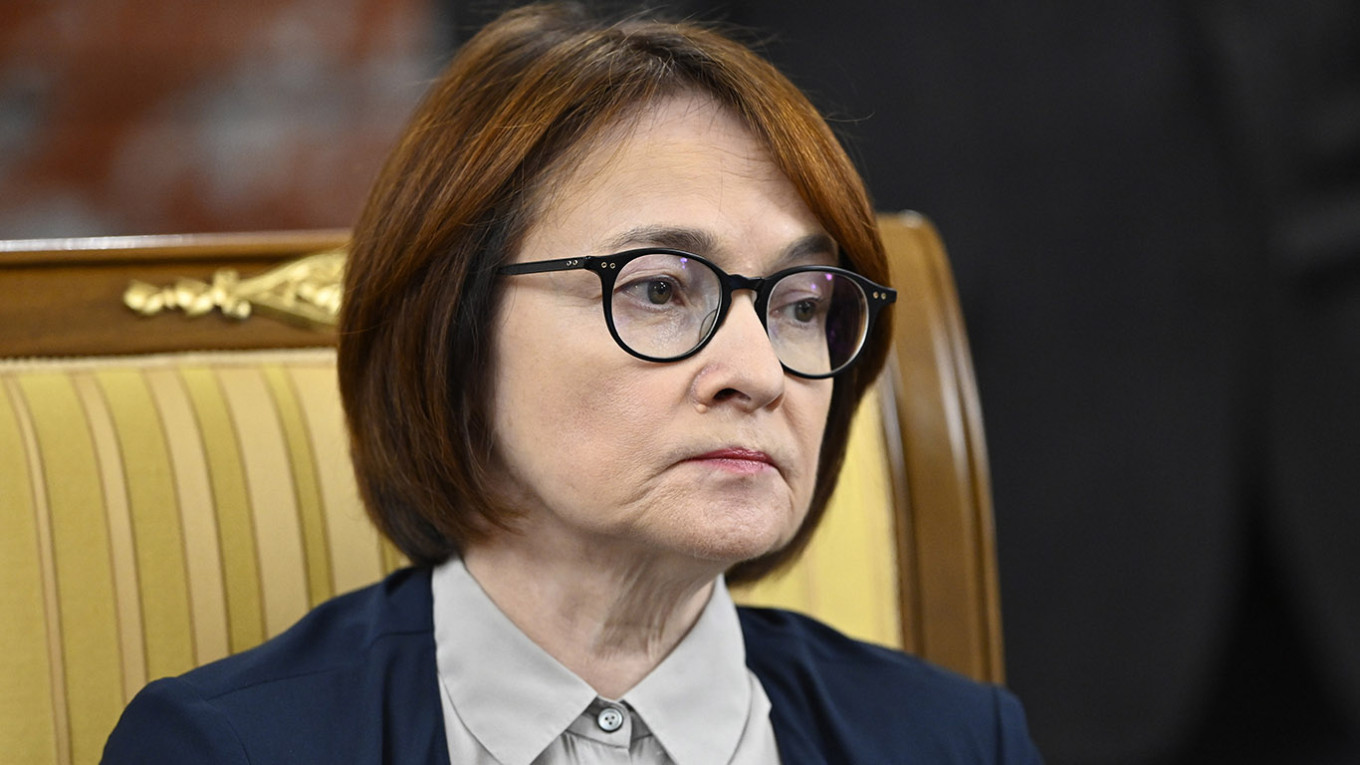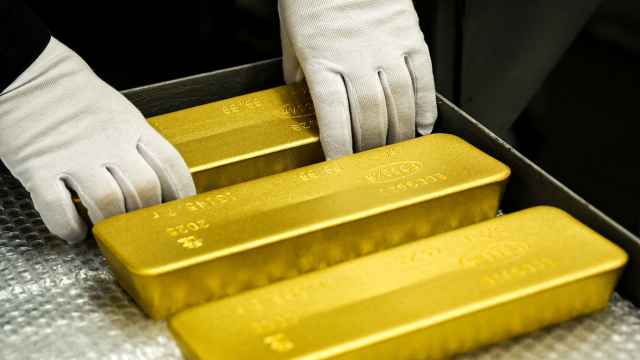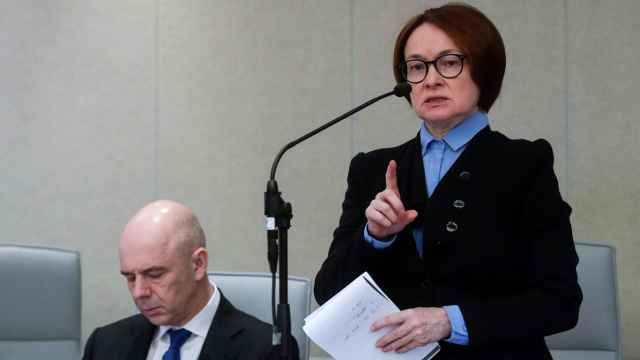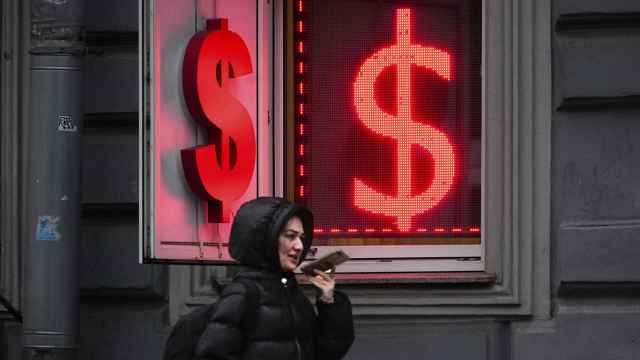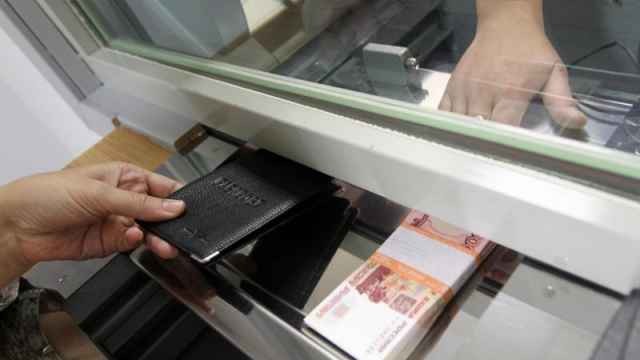The Russian Central Bank has cut the key interest rate again from 17% to 16.5%, as most experts had predicted. The cut is symbolic: the Central Bank itself doesn’t even hide that it was forced into it. The main question now is whether this is a one-off concession or the regulator finally caved in to government pressure.
For now, it looks more like the first option. But the second cannot be ruled out.
The official explanation for the rate cut given in the press release is very telling: “Sustained indicators of current price growth have not materially changed and remain above 4% on an annualized basis. The economy continues to return to a trajectory of balanced growth. In recent months, lending activity has picked up. Inflation expectations remain high.”
Almost every sentence here contradicts what actually happened. If price growth is still sustained and has not moved the economy even a jot toward the 4% inflation target, why decide to cut the rate? How is that going to bring the target closer? Why lower the interest rate if the economy’s growth is “balanced?”
And if lending has increased in recent months and inflation expectations (which push market participants toward higher consumption and higher prices) remain high, that screams that the rate should be raised — in case someone didn’t understand that it’s time to be more modest.
It feels as if the press release was prepared with the assumption of continued growth or retaining the previous key rate. Then, when they were forced to lower it, they deliberately decided not to change the text.
The Central Bank’s chair, Elvira Nabiullina, said that the board discussed three options: keep it at 17%, cut it by half a percentage point to 16.5%, or cut it by a whole point to 16%. But Nabiullina’s remarks were as contradictory as the press release:
“The situation is developing overall within the bounds of our forecast. Monetary and credit conditions remain tight, which creates prerequisites for lowering inflation. Therefore, we decided to continue easing the policy. At the same time, since the last meeting, substantial inflation risks have materialized.”
Put simply, the Central Bank expected that inflation would resume its rise after the usual seasonal drop in August–September, understood that only tight monetary policy prevents it from running wild, and therefore is easing policy in light of new inflation risks. And Nabiullina, without batting an eye, lists these risks: a widening budget deficit, rising fuel prices, higher taxes.
And she is absolutely right. Moreover, none of these risks can be considered short-lived; there is no understanding of when these risks will not only disappear but also diminish.
A budget deficit is the inevitable consequence of the fact that no one plans to cut military spending. The government is unable to raise money through taxation because the civilian sector is stagnant.
Rising fuel prices are driven and will continue to be driven by international sanctions that limit exporters’ revenues, as well as Ukrainian drone strikes on refineries and other oil-and-gas infrastructure.
A fresh tax rise (of two percentage points on VAT to 22%) will not cause only a short-term uptick in inflation, as Nabiullina says — it will simply increase inflation in a way that would not otherwise have happened. Only an expansion of domestic production and imports could offset that rise. There are no signs of that happening at any point in the future.
You can’t explain the contradiction between the Central Bank’s words and actions with economic factors. But you can easily explain it politically. The draft federal budget for 2026 and for 2027-2028 clearly shows that revenues have no chance of matching expenditures. Expenditures have been cut to the minimum — the barest social spending so people won’t revolt, investments delayed or reduced. It’s all war, all hardcore — there’s no time for indulgence now.
They can’t raise revenues enough to satisfy the government’s military appetite. The decision to raise VAT horrified small business owners, who responded by saying they’d close up shop. They reacted so abruptly that the government had to figure out how to boil that frog slowly, lowering the income threshold at which one must start paying VAT, gradually.
Moreover, they won’t make village shops pay VAT — I hope — and they probably won’t force truck drivers to either, so my protagonist Sasha might still be able to feed his family.
But there’s simply not enough money. Exporters, instead of complaining that trade is falling due to sanctions, complain that the ruble is too strong. That’s understandable: complaining about the war is a criminal offense, while complaining about Nabiullina — whose rate policy strengthens the ruble — is safe, easy and socially acceptable.
It’s not that there’s nothing to complain about. Tight monetary policy really does slow the economy and industry. But there’s a nuance — it largely slows the civilian sector of the economy. The defense sector and government procurement operate under different rules: loans at 2-8% per annum with restructuring options, advance payments on state orders, and price increases, among others.
But the military-industrial complex is being slowed down, too! The only thing still growing is drone production, a simple assembly-line industry hidden in the category “other transport equipment.” When it comes to producing shells, let alone rockets and tanks, you need new workshops (which need to be constructed), high-precision machines (which must be imported) and people (who must be recruited and trained).
And when the pro-Kremlin Center for Macroeconomic Analysis and Short-Term Forecasting writes that Russian industry is between stagnation and recession, it is wrong in only one respect: Russian industry, and the economy as a whole, sits between stagnation and stagflation — a combination of stagnation and high inflation. I wouldn’t exclude the possibility that the Russian economy will manage to combine an economic downturn, a recession, with high inflation.
Is this the end of the Central Bank’s independence? When a company is doing well, shareholders tend to turn a blind eye to managers’ quirks. When things go badly, people start looking for someone to blame. And if you can’t name the real culprit, all anger falls on a scapegoat.
The Central Bank has become such a scapegoat. On the one hand, you can lambast it as much as you like. On the other hand, as people in the corridors of power say, Elvira Nabiullina has one boss — President Vladimir Putin. So there is no doubt that any abuse won’t stick to her.
However, shortly before the rate decision, a very unpleasant signal arrived for Nabiullina: the leash the Kremlin gave her to act independently was being tightened. The Finance Ministry prepared draft amendments to the law “On Currency Regulation and Currency Control,” which record the possibility of the president issuing decrees, alongside federal law, to regulate relations in the currency sphere in Russia — in particular to unilaterally introduce restrictions on citizens' foreign currency transactions.
The second reason to be alarmed is that this change puts the Finance Ministry at odds with the Central Bank. The reason is clear: the Finance Ministry is responsible for the unbalanceable budget and stubbornly flat revenues. Nobody can rein in a president hell-bent on war. But they can put pressure on the Central Bank to loosen the reins of monetary policy.
Yes, cutting the rate in current conditions will spur inflation. But the Central Bank, not the Finance Ministry, is responsible for inflation.
The end of the cooperation between these two agencies is a bad sign. As one economist wittily explained to me, a ship can sink in different ways. It can capsize, dragging everyone down at once, or it can slowly settle to the bottom while keeping stability. While the Finance Ministry and the Central Bank worked in tandem, the ship of the Russian economy sank evenly. Now it might capsize.
So the Central Bank went into the rate meeting with such a set of starting conditions before making a concession by lowering — a quarter of a percentage point — because a larger reduction against a two-digit rate would have looked like mockery.
And the signal is very clear: Nabiullina had to give in. She did so with all the dignity she could muster. So much so that when a journalist asked about the ruble’s exchange rate in the event the war ends, she replied: “Any scenario that implies an improvement in external conditions will be disinflationary. That will contribute to us being able to lower the key rate faster.”
You couldn’t be clearer about what exactly was behind the bank’s rigidity. Putin did not give Nabiullina carte blanche so she could explain to him the harm the war does to the Russian economy. He gave it so she could ensure he could wage that war. And if he decides he can continue the war without the Central Bank’s help, then no economic considerations will stop him from withdrawing his patronage.
Unfortunately, there is a high probability that he will decide so. If the Central Bank loses independence and shifts to a policy of fiscal dominance, prices will rise, businesses will close and citizens will have a much greater motive to support the war. After all, the army will feed you and give your family a hefty package of benefits if you die.
A Message from The Moscow Times:
Dear readers,
We are facing unprecedented challenges. Russia's Prosecutor General's Office has designated The Moscow Times as an "undesirable" organization, criminalizing our work and putting our staff at risk of prosecution. This follows our earlier unjust labeling as a "foreign agent."
These actions are direct attempts to silence independent journalism in Russia. The authorities claim our work "discredits the decisions of the Russian leadership." We see things differently: we strive to provide accurate, unbiased reporting on Russia.
We, the journalists of The Moscow Times, refuse to be silenced. But to continue our work, we need your help.
Your support, no matter how small, makes a world of difference. If you can, please support us monthly starting from just $2. It's quick to set up, and every contribution makes a significant impact.
By supporting The Moscow Times, you're defending open, independent journalism in the face of repression. Thank you for standing with us.
Remind me later.


